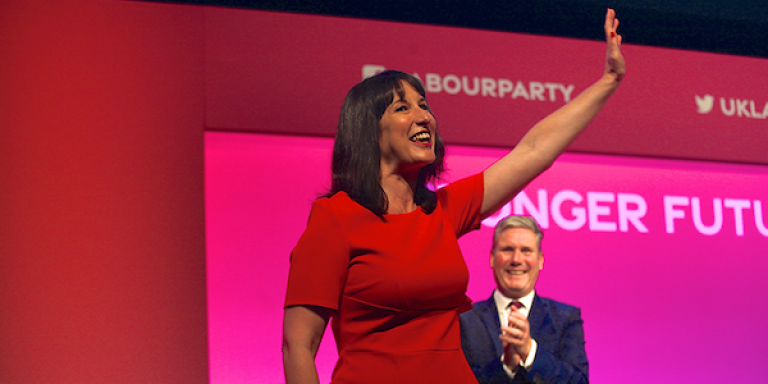Securonomics: why is everyone suddenly so interested in security?
31 May 2023

Message from Marc Stears, Director, UCL Policy Lab from the June edition of the Policy Lab newsletter. Sign up here.
Politics sometimes goes through phases where it feels like it is everything, everywhere, all at once.
The last few years have certainly felt like that in many countries, including our own. Politics has been full of big characters and big promises of big change. And lots of chaos too.
Yet today we find ourselves in the UK, with political leaders, including Rishi Sunak and Kier Starmer, who seem intent on a reset.
The promise of the present is security and stability, at least as much as it is change.
There are many reasons for this shift but one of them is that voters' concerns today appear to be rooted in a sense of anxiety and uncertainty, driven by the profound challenges they face in their daily lives. Increasingly, people are demanding that politics and policymaking should work to find solutions to these everyday problems, not layer on additional complexity.
Here at the UCL Policy Lab we have sought to channel this spirit too. We have been asking how we can bring UCL’s profound and detailed understanding of complex, often global challenges, to bear directly on the everyday concerns of communities here in the UK and around the world.
And that has motivated three of our biggest initiatives over the last few months.
It is this spirit that drives Ordinary Hope, a major new collaborative project from UCL and the Joseph Rowntree Foundation. The project asks why it is that all the brilliant research into social and economic inequality in recent years has not shifted the dial enough in public policy debates and seeks to create a brand new network, connecting together researchers with political strategists, world-class storytellers, journalists, community campaigners and others who know how change might work in practice.
It also animates our in-depth Collaborative Conversations, a series of philanthropically-funded workshops that bring together the leading policymakers, researchers and practitioners in the country to help untangle some of the seemingly intractable issues we face. In this form we have discussed immigration, social integration, inequaity and levelling-up, the quest for economic growth, the future of foreign affairs and other crucial topics with prominent MPs, cabinet ministers, shadow cabinet ministers, think tank heads, community leaders and researchers from UCL Policy Lab and beyond. These conversations do not seek the limelight but instead aim to equip us with the answer to improve the everyday lives of communities across the country.
Finally, it inspires our efforts in public events and communications. Through our termly UCL Policy Lab Magazine, we have been seeking to explore the ideas of some of the Lab’s leading researchers in a way that puts them into direct conversation with the communities whose lives are most impacted by the policy decisions of the moment. We have travelled beyond campus too, recently heading to Wigan to meet with politicians and to Sheffield to speak with community leaders and social entrpreneurs. We have hosted public discussions with inspiring members of the Lab community, including Paul Johnson of the IFS, and more intimate gatherings of those seeking to unlock the power of evidence for social and economic change.
I like to believe that it is this mission that makes the UCL Policy Lab special and that draws on the great traditions of UCL itself. We are motivated most of all by a sense that great ideas have to work in open collaboration and partnership with people from every walk of life if we are to disrupt the injustices and inequalities of the present.
It’s why I urge you to check out our latest work in this newsletter and also to get in touch if you have an idea or opportunity.
Please don't hesitate to get in touch.
Marc Stears, Director, UCL Policy Lab
 Close
Close

